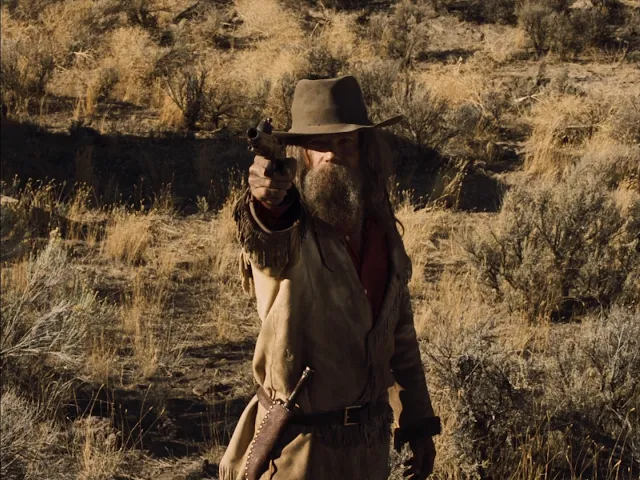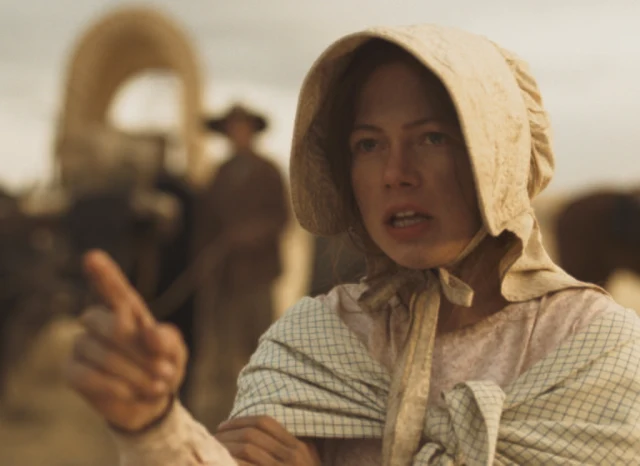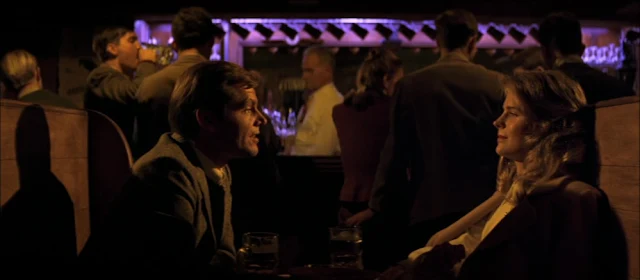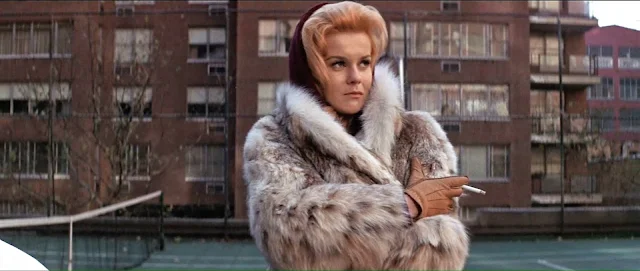Meek's Cutoff (Kelly Reichardt, 2010)
Cast: Michelle Williams, Bruce Greenwood, Will Patton, Zoe Kazan, Paul Dano, Shirley Henderson, Neal Huff, Tommy Nelson, Rod Rondeaux. Screenplay: Jonathan Raymond. Cinematography: Christopher Blauvelt. Production design: David Doernberg. Film editing: Kelly Reichardt. Music: Jeff Grace.
Kelly Reichardt's Meek's Cutoff leaves its viewers in the dark in more ways than one. The night scenes are illuminated only by what would have been available to the members of the wagon train making its slow way west: lanterns, firelight, and moonlight. And in the end, we are not allowed conventional movie closure: the survival or demise of the characters, or even whether they made the choice to follow the lead of Meek or of the Indian who has been pressed into service as a guide. Reichardt has flouted so many conventions of the genre that, depending on your willingness to take the film on its own terms, it can be (and has been) described as either gripping or frustrating. She eschews the tendency to turn the American West into a panorama of wide open spaces, instead cramming everything into the old-fashioned Academy ratio for screen framing. She undercuts heroism by never letting us know whether the ostensible hero of the film, Michelle Williams's Emily Tetherow, is right or wrong in her decision to defend the Indian guide against the racist Meek (Bruce Greenwood, hidden behind lots of hair and beard). What we have most of in the film is a sense of being lost, not only physically, in the desert wilds of the far West, but also spiritually, of being cut off from the God the devout members implore so fervently. The isolation is terrifying, especially when the one person who knows the land in which they're wandering doesn't speak their language. We are betrayed by our hope for conventional movie resolutions, and that only makes us feel cut off too.



















































